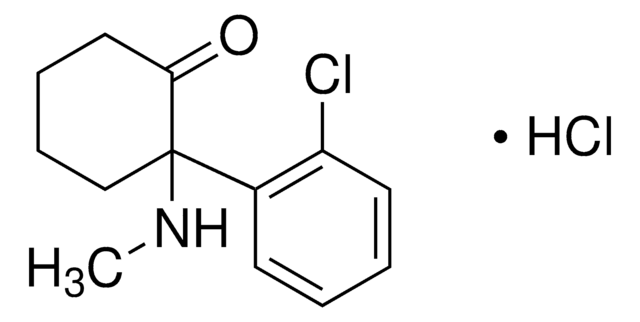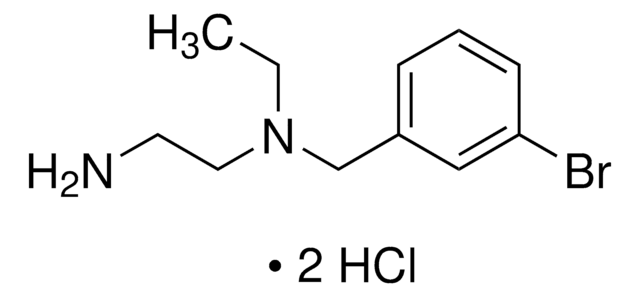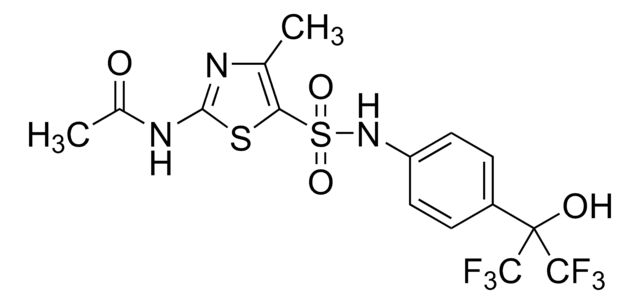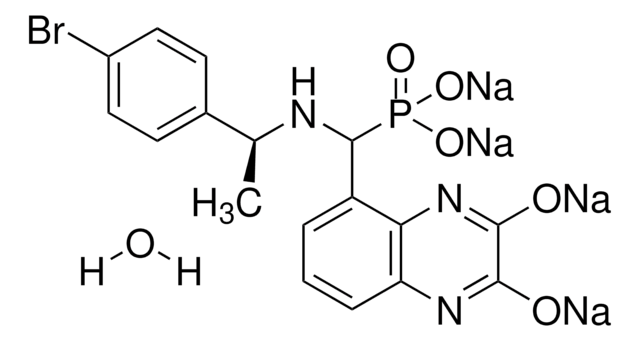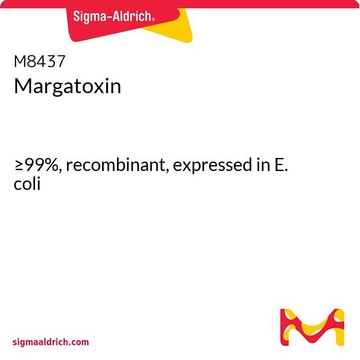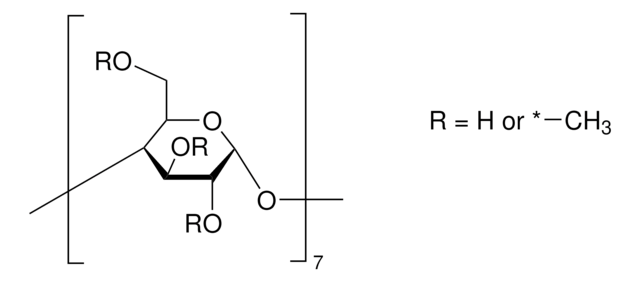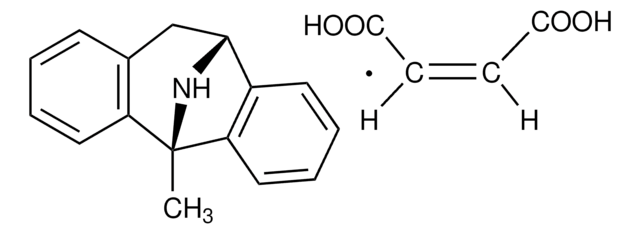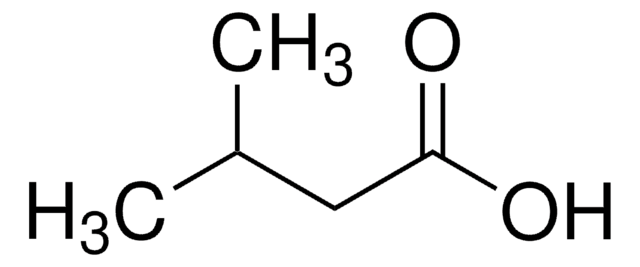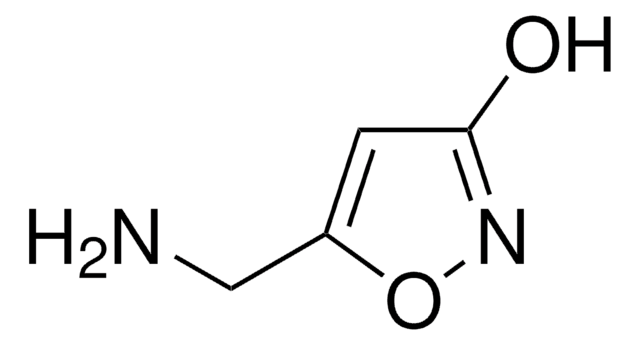5.04528
NVP-AAM077 Tetrasodium Hydrate
Synonym(s):
NVP-AAM077 Tetrasodium Hydrate, NMDA Antagonist VII, NVP-AAM077, [[[(1S)-1-(4-Bromophenyl)ethyl]amino](1,2,3,4-tetrahydro-2,3-dioxo-5-quinoxalinyl)methyl] phosphonic acid tetrasodium hydrate, PEAQX tetrasodium hydrate, NVP-AAM077, [[[(1S)-1-(4-Bromophenyl)ethyl]amino](1,2,3,4-tetrahydro-2,3-dioxo-5-quinoxalinyl)methyl] phosphonic acid tetrasodium hydrate, PEAQX tetrasodium hydrate, NMDA Antagonist VII
About This Item
Recommended Products
Assay
≥99% (HPLC)
Quality Level
form
solid
manufacturer/tradename
Calbiochem®
storage condition
OK to freeze
protect from light
color
white
solubility
water: 24 mg/mL
storage temp.
−20°C
InChI
1S/C17H17BrN3O5P/c1-9(10-5-7-11(18)8-6-10)19-17(27(24,25)26)12-3-2-4-13-14(12)21-16(23)15(22)20-13/h2-9,17,19H,1H3,(H,20,22)(H,21,23)(H2,24,25,26)/t9-,17?/m0/s1
InChI key
XXZGNAZRWCBSBK-WFVOFKTRSA-N
General description
Biochem/physiol Actions
NMDA receptors
Warning
Reconstitution
Other Notes
Milton, A., et al. 2013. J. Neurosci.33, 1109.
Kochlamazashvili, G., et al. 2012. J. Neurosci.32, 2263.
Kocsis, B., et al. 2012. Sleep.35, 1011.
Legal Information
Storage Class Code
11 - Combustible Solids
WGK
WGK 2
Flash Point(F)
Not applicable
Flash Point(C)
Not applicable
Certificates of Analysis (COA)
Search for Certificates of Analysis (COA) by entering the products Lot/Batch Number. Lot and Batch Numbers can be found on a product’s label following the words ‘Lot’ or ‘Batch’.
Already Own This Product?
Find documentation for the products that you have recently purchased in the Document Library.
Our team of scientists has experience in all areas of research including Life Science, Material Science, Chemical Synthesis, Chromatography, Analytical and many others.
Contact Technical Service